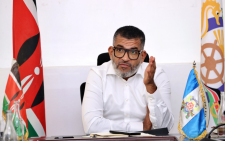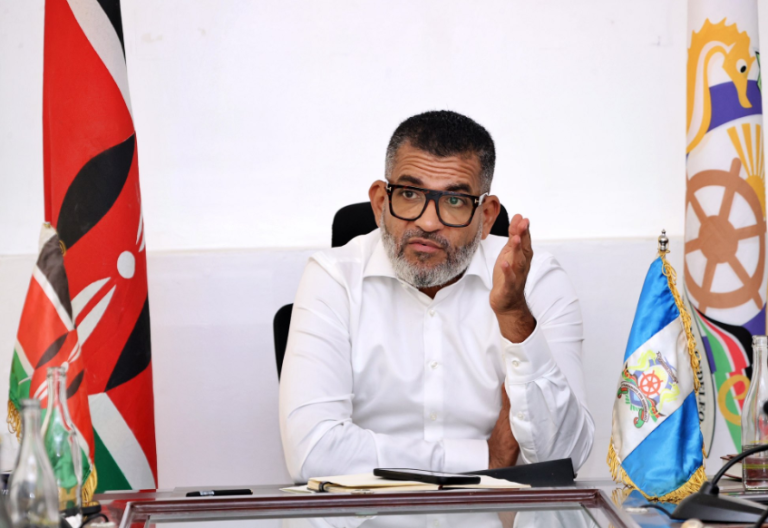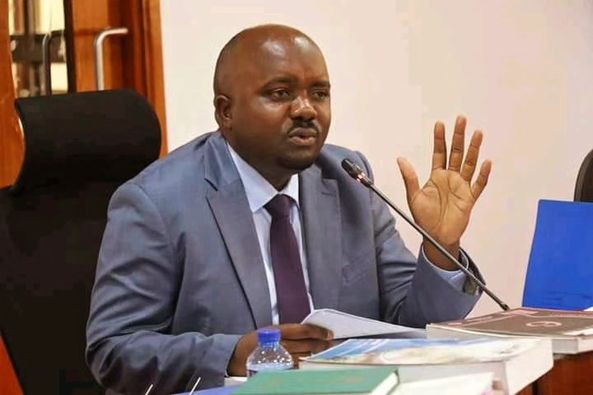Experts call for increase climate finance towards local initiatives

Climate and policy experts have made an urgent call for increased climate finance to support locally-driven adaptation and resilience-building initiatives across the continent as Africa moves to chart her own path on climate change.
This call follows a two-day dialogue on climate resilience bringing together African leaders, scientists, youth activists and faith-based organisations ahead of the 30th session of the Conference of Parties (COP30) at the end of the year.
The United Nations Framework Convention on Climate Change (COP30) is slated for November in Belem, Brazil.
This appeal comes amid mounting concern that communities on the frontlines of climate change –such as in Africa- continue to be side-lined by conventional financing models and global inaction.
“We have all witnessed the devastating effects of climate change, from prolonged droughts to catastrophic floods that are disrupting livelihoods and ecosystems in Africa. The time to act is now, but without adequate and timely resources reaching communities on the frontlines, even the most ambitious strategies will remain words on paper. Action must be matched with investment if we are to build lasting resilience,” said Dr Éliane Ubalijoro, the Chief Executive Officer- CEO of the Centre for International Forestry Research-World Agroforestry Centre (CIFOR-ICRAF).
The conference, titled Vatican African Conference on Climate Resilience, was convened under the auspices of the Pontifical Academy of Sciences (PAS), Pontifical Academies of Sciences Social Sciences (PASS), in partnership with CIFOR-ICRAF, the Network of African Science Academies (NASAC) and a wide range of African stakeholders.
Institutional empowerment
During the conference, participants stressed that direct access to finance for cities and local governments is essential, alongside the development of innovative financial instruments tailored to Africa’s unique needs.
Local authorities, they said, must be empowered—not only with funding, but also with decision making authority and technical capacity—to design and implement tailored adaptation strategies that respond to the lived realities of their people.
“Weak institutional coordination, limited access to financial resources and inadequate technical capacity hinder effective climate change adaptation and resilience-building efforts. These challenges highlight the need for increased support, funding, and capacity building to help Africa adapt to climate change and build resilience,” said Dr Wilber Ottichilo, governor of Vihiga County and Chair of the Environment, Forestry and Climate Change Committee of the Council of Governors.
Africa’s academies of science, Indigenous knowledge holders, faith-based groups, and civil society organisations were recognised for the important roles they play in ensuring solutions are rooted in local realities.
“Africa can achieve climate resilience when action-oriented alliances of local governments, civil society, science, farming communities and business are formed, and supported by increased volume and quality of adaptation finance,” noted Dr Joachim von Braun, president of the Pontifical Academy of Sciences.
Dr Jacqueline Kado, the Executive Director of the Network of African Science Academies (NASAC) concurred, adding that Africa’s resilience journey must be science-informed, locally led, justice-grounded, youth driven and community-rooted.
The urgent need to build resilience in food, land and water systems was also a key takeaway from the conference. Speakers emphasised that integrated land use planning, climate-smart agriculture and water harvesting are powerful drivers of change—especially when grounded in African research and local innovation.
Nature-based solutions such as forest conservation, tree planting, reforestation and eco-friendly infrastructure were also highlighted as cost-effective approaches that align with both scientific evidence and the cultural and spiritual values of African communities.
On disaster preparedness, participants called for improved early warning systems and recovery mechanisms, including insurance for vulnerable populations.
Climate-induced migration, they warned, must be addressed holistically, recognising its human rights dimensions and structural drivers.
A cornerstone of the discussions was the Mitigation, Adaptation, and Societal Transformation (MAST) framework, which the conference adopted as a foundational pillar for advancing climate resilience in Africa.
Speakers emphasised that climate change mitigation must align with justice and development rights, while adaptation must be prioritised given the continent’s acute exposure to climate risks.
Youth voices were central throughout the event, particularly through the Youth MAST Dialogues, which presented bold visions for change and called for genuine intergenerational collaboration.
“There is nothing about us, without us. And our time is now. We urge policymakers, development institutions, and knowledge networks to make climate knowledge products, tools, and financial resources widely accessible,” said Valerie Nutakor, who was among the youth representatives at the conference.
Faith-based institutions and civil society were also recognised for their moral leadership and grassroots reach. Inspired by Pope Francis’ 2024 call for a Universal Protocol of Resilience, delegates echoed the need for ethical urgency, solidarity and planetary stewardship. They concurred that faith actors are uniquely positioned to galvanise public support, shift values and sustain community-led action.
“Climate change is not an isolated environmental issue. It is an existential, spiritual and geopolitical challenge that calls for moral clarity and united global action,” said Archbishop Philip Anyolo, the Archbishop of Nairobi and head of the Catholic Church in Kenya.
“We must move from stewards of creation to carers of creation. What we received with beauty and life, we must not pass on as wilderness,” said His Eminence Cardinal Peter Turkson, Chancellor of PASS.














